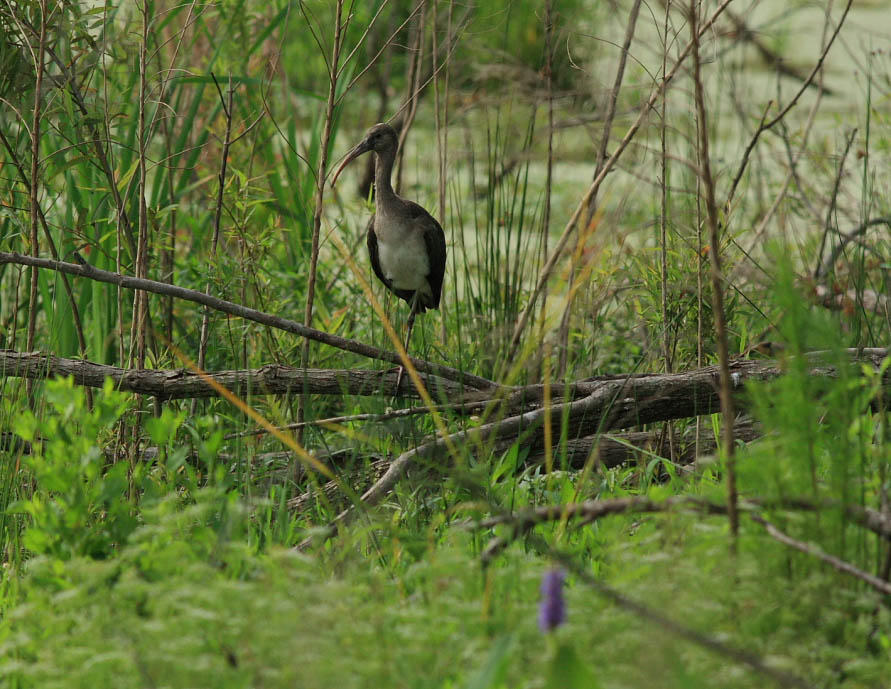
Section Branding
Header Content
McIntosh County rethinks roadside spraying
Primary Content

Mary Landers, The Current
McIntosh County is pausing a plan to replace roadside mowing with an herbicide spraying program after residents questioned it.
“Earlier today, after reviewing the roadside (herbicide) spraying proposal with staff, I have decided to delay the implementation of the program until calendar year 2023,” County Manager J. Patrick Zoucks wrote in a press release issued Monday. “This will provide more than sufficient time to address the concerns indicated by the group Keep McIntosh Beautiful and other individuals who indicated questions concerning the process.”
Retired architect Mark Yeager, who lives near Harris Neck National Wildlife Refuge, asked county officials to review their plans after learning of them last month. Word spread quickly on a Facebook page “Don’t Spray McIntosh County.” Begun on March 29, the page garnered 173 followers in its first week.
“Many parts of nature are at risk, including human health risks,” Yeager said in an interview with The Current.
McIntosh is a “watery world” that’s even wetter at high tides and king tides, Yeager said.
“I counted 40 ditches just in the northern part of McIntosh and so the question is if you apply herbicides who’s going to control when they stop the spraying,” he said.
Where to stop spraying can be tricky, too, since the high tide’s reach may not be evident at low tide.
McIntosh County contracted with ChemPro to provide the roadside spraying. The herbicides planned for use include Dow AgroSciences’ Milestone VM (active ingredient aminopyralid) and Accord XRT II (glyphosate), Bayer’s Oust XP (sulfometuron methyl), and BASF’s Plateau (ammonium salt of imazapic).
Instructions for three of the four herbicides include, “Do not apply directly to water, to areas where surface water is present or to intertidal areas below the mean high water mark.”
Resident Christa Hayes, who has a background in ecology and a love of native plants, wrote a memo to the county imploring officials to improve its mowing plans rather than switching to chemical control.
“The pollinators and blooming plants along our roadsides have attracted me since 2006 when I moved to the coast,” she wrote. “Looking through my files, I found photographs documenting 43 species of butterflies nectaring on 91 species of plants along seven of the roads that are targeted for spraying.”
The Georgia Department of Transportation already sprays roadsides it’s responsible for in the county. But that leaves 88 miles of roadways the county manages. Yeager wants to see the county “appoint a steering committee of residents and staff to move forward on developing a proposal for safe, non-chemical, and cost efficient roadside maintenance.”
County Manager Zoucks did not immediately return a request for comment.
His press release concludes:
“The concerns, including environmental safety and application methodology, are welcomed and indicative of a caring and concerned population. After all, McIntosh County is the epicenter of environmental conservation and preservation in Georgia. More than 96,000 acres of land within the boundaries of the County are held by the State of Federal governments, primarily as wilderness areas. This unique status as caretaker of some of the State’s last truly wild areas is cause alone for review of any chemical application. While the proposed chemicals are currently used throughout the county on state highways, the further application on county roadways is a concern for many, and as such, should be reviewed.
“I thank and appreciate all of those who have indicated their questions and concerns regarding the spraying. I will work to answer all questions before considering the rescheduling of the spraying.”
This story comes to GPB through a reporting partnership with The Current, providing in-depth journalism for Coastal Georgia

